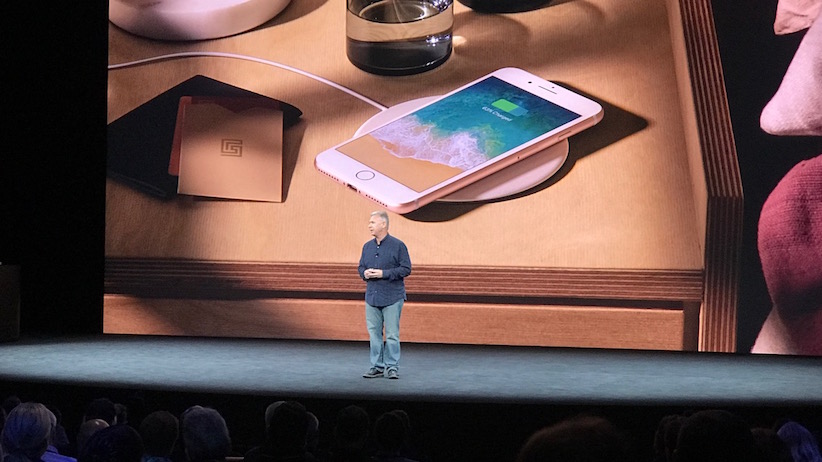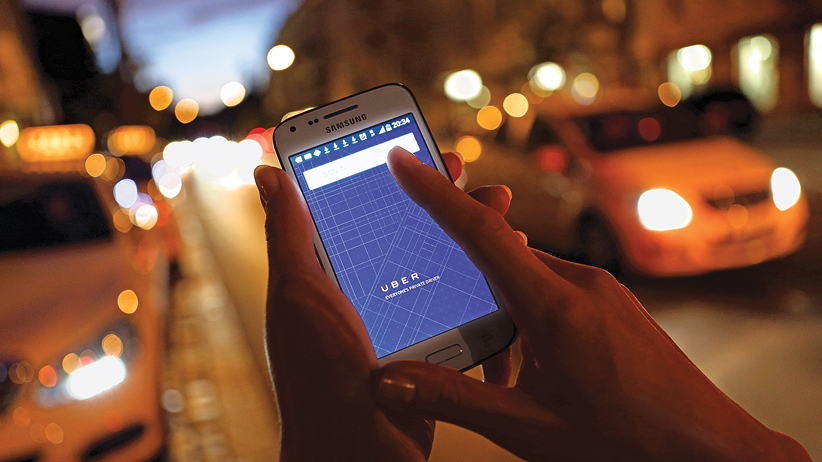What will happen when we fall out of love with tech?
Opinion: Our relationship with technology is reaching a tipping point, where the promises it once held feel like lies. What will happen next?
Share

The gods of Silicon Valley have long promised us a better life through technology. But recently, there have been signs of stress in our relationship—and questions are gradually emerging about the existential threat that tech poses.
In the past few months, we’ve learned about the massive Equifax data breach, affecting potentially millions of people and exposing their personal information to the great void. It came less than a year after Yahoo revealed that a hack it had previously reported as affecting one billion personal email addresses actually affected all three billion of them.
There is also, of course, Facebook’s democracy problem. Last month, the tech giant admitted to selling $100,000 worth of ads to a Russian troll farm, which disseminated divisive, politically charged messages throughout the social media platform during the 2016 U.S. presidential election. The messages may have been seen by hundreds of millions of users. The Russians didn’t tell anyone how to vote, but they didn’t have to—nor, probably, did they want to. The point, after all, is not to give direction, but to create an environment for effective misdirection.
RELATED: Facebook pledges more transparency for political ads
Into that mix came the mid-September announcement of the iPhone X, the first mobile phone to carry a price tag of US$1,000. It is not the stuff of police or federal investigation, to be sure, but it exacerbates a disconnect that has begun to take hold in the minds of Silicon Valley’s customers: that the price of buying into the products, and thus the ideas, of the tech giants is becoming ever steeper, and is perhaps no longer worth the investment. Where once we asked whether one could survive in the modern world without an iPhone or a Facebook account, or not knowing about Twitter conversations, the question is becoming the opposite: is it worth it? Where once we believed tech could connect us to our friends, we are beginning to ask—as the New York Times did this weekend—was Silicon Valley ever really a friend to us?
Somewhere along the line, that growing disconnect between the promises of the tech world and its users risks becoming a full break. The tech bubble will burst again. But, unlike the dot-com bubble in the late 1990s, the bubble that will pop will be the expanding veneer of hope, optimism, and above all, trust that we’ve personally invested in Silicon Valley for the last decade and a half. We can already see how it might happen—and unfortunately, if the ongoing backlash to globalization is any kind of template, we already know what could come afterwards.

In 2000, Bill Clinton stood before his fellow politicians and defined the last grand idea of the 20th century. Globalization, he said, was a “revolution that is tearing down barriers and building new networks among nations and individuals and economies and cultures.” No place encapsulated that idea like Silicon Valley—a region of innovation and creativity that authors John Micklethwait and Adrian Wooldridge wrote at the time was “in many ways an exaggerated version of the sort of society that globalization is helping to create everywhere else.”
Over the next 15 years, Silicon Valley updated the idea of freedom at the core of globalization, bringing it down from a geopolitical level to a personal one. This world of barrier-free economics and culture now feels, thanks to the devices in our hands, very much now like our world—a personal universe of buying what we want, staying where we want, talking to who we want, and working how we want. We no longer invest in this market as citizens, but as individuals, experiencing the augmented reality update of 20th-century globalization.
Sci-fi writer Arthur C. Clarke’s third law—that any sufficiently advanced technology is indecipherable from magic—has long been true, but it can feel as though the distance between our fingertips and the mechanics of the tech we use on a daily basis now is larger than ever before, and growing. There is no opening the hood and learning the mechanics; the screen’s black depths are essentially infinite. It’s difficult enough to understand how your phone actually works, let alone how you might see one advertisement versus another appear on its surface.
In lieu of that familiarity, we are required to deepen our faith in Silicon Valley’s vague promise that these systems are operating in our best interests. We trust that our social networks are going to give us a sense of connection and community. We trust that our online banking is secure. And we trust that the app that gives us a job to do every day is designed to create entrepreneurship. At least one full generation knows of no other kind of world.

The depth of trust now invested in this tech world is difficult to measure, but it connects us like nothing has before. Take only one of tech’s biggest platforms, Facebook, currently the largest mobile browser. It has billions of users across every continent, and the conversations and information that travels across those borders shapes the world in countless offline ways. The scale of its influence is simply immense, and its form sometimes unclear. As Max Read put it this month in New York magazine, it is like “a four-dimensional object…we catch slices of it when it passes through the three-dimensional world we recognize.” But its effect is clear. With billions of people connecting via its various platforms every day, it allows people from across the world to form friendships and opinions, buy and sell merchandise, and organize politically. It is a parallel civil society—one that feels literally closer at hand than our offline one.
And it risks having an impact on our political life. Just after the U.S. presidential elections in 2016, there was much consternation when Harvard lecturer Yascha Mounk and the University of Melbourne’s Roberto Stefan Foa released data on the strength of liberal democracies. As the Times reported, their findings showed that across a handful of western nations, “the percentage of people who say it is ‘essential’ to live in a democracy has plummeted, and it is especially low among younger generations.” Perhaps forms of government, and the role they play in the lives of their citizens, can begin to feel somewhat irrelevant or at least interchangeable when your agency feels more closely attached to the phone in your hand than the leaders in traditional halls of power.
And if faith in tech should end, too? If a mega-mega-hack should strike, for instance, or evidence emerges that our democratic system has been fully undermined at very deep levels, and there is anti-tech contagion, the situation could become critical. Because of its depth, can we really predict what form the subsequent reactionary rhetoric or even mobilization might take?
RELATED: The coming automation disruption
Is it possible that, just as the failure of an earlier, analog version of globalization to fulfill its grand promises laid the fertile soil for the current mood of systemic doubt, so too might a loss of trust in its updated 21st-century version bring about an unexpected backlash?
What happens when enough of us realize that the tech we love has done nothing to alleviate inequality, or has in some cases contributed to it? Or when our personal data or identity is stolen but we have not been able to afford identity recovery insurance because of the low wages we earn from our app-driven freelance gig? Or when the democracy we believe to be solid is revealed to be shifting and opaque, and we can’t understand how it works or even recognize it—or our fellow citizens—as familiar? Or when we have just all simply had enough of it and all that it claims to represent?
What will happen if we one day wake up with the belief that all the promise of Silicon Valley’s revolution is the opposite of what we want? Just like many of those who have rejected globalization’s earlier iteration, we may decide to put our faith in another system or another set of ideals. But it’s anyone’s guess as to which one that might be, or the kind of vision of the world we might then adopt.